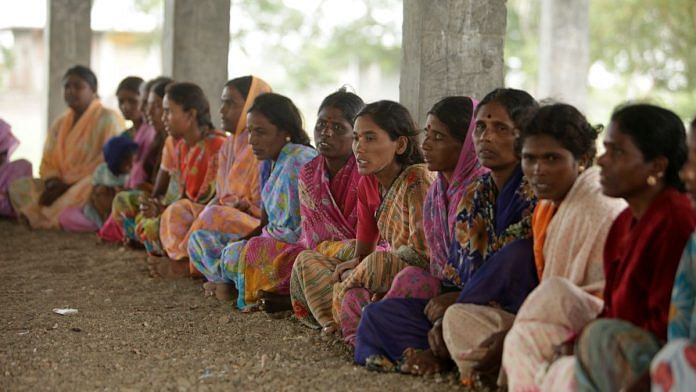New Delhi: Concerned over the growing number of crimes against women, the National Commission for Women (NCW) has decided to review the Information Technology (IT) Act, as it feels the existing law has not been able to adequately address crimes against women.
The NCW has also been reviewing provisions in existing laws that cater to women and children in three specific areas — guardianship, occupational safety and health, and disasters. Based on the outcome of these reviews, the commission will send a set of recommendations to the law and other ministries concerned.
“There are some societal problems that women face more than others, and laws need to have special provisions to address these. We will be making recommendations to different ministries on the need to either amend existing provisions or bring new laws that cater to women,” NCW Chairperson Rekha Sharma told ThePrint.
‘Existing IT Act not sufficient to curb cyber crimes’
The IT Act, 2000 does have provisions against sending offensive messages online or sharing sexually explicit content. The NCW believes that there is a need to specifically cater to the increasing menace of women being harassed on social media.
“We get a lot of complaints from women who face harassment on Twitter and Facebook. Their pictures are misused, sometimes fake IDs are created. All of this causes serious trauma for them,” Sharma said.
Equal guardianship rights for women
The NCW is also reviewing certain provisions of the Hindu Minority and Guardian Act, 1956 and the Guardianship and Wards Act, 1890, with an aim to make guardianship laws more inclusive.
The Hindu Minority and Guardianship Act, 1956 makes a distinction between “legitimate” and “illegitimate” children. In the case of a Hindu minor boy or girl, the Act says, the father is the natural guardian, and after him, the mother. In the case of an ‘illegitimate’ child, however, the natural guardian is the mother.
“Mothers need to be given equal rights with respect to their wards, and should be considered the natural guardians,” Sharma said.
The NCW will form a list of recommendations based on a law review consultation it had held Saturday, and forward them to the women and child development ministry as well as the law ministry.
Also read: After Article 370 move, J&K women can expect better redressal of complaints, says NCW
Occupational safety and health
Though there are provisions under the Factories Act, 1948 for women’s health and safety, the NCW believes many women workers are unfairly treated in industries.
Sharma said there are special requirements for women that aren’t paid heed to. “Sometimes, there isn’t any place for them to even change sanitary pads,” she added.
The NCW chief also said how women are often exploited by contractors. “They make women workers sign documents that they can’t even read. The contractors then take half their salaries,” she said.
Women, children at a greater risk during natural disasters
Women and children are much more vulnerable during natural disasters and are in need of special provisions to safeguard their rights, said the commission.
“If husbands die in a disaster, women are left alone. They become vulnerable to sexual harassment in such cases. We can’t even imagine how difficult it is for them to survive in these situations,” Sharma said.
The commission plans to recommend formulation of a new policy or law to help women and children cope better after natural disasters.
Also read: Political parties think women are ‘weak’ candidates, but data doesn’t say so



